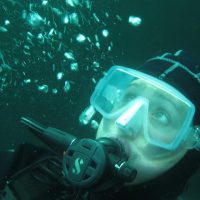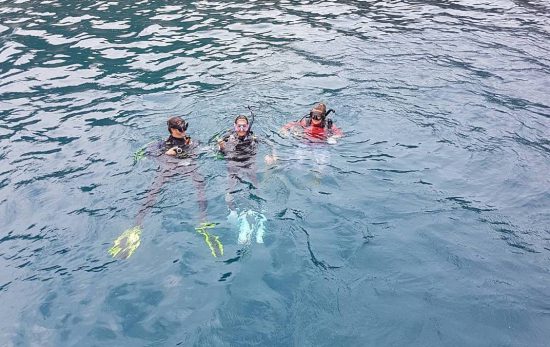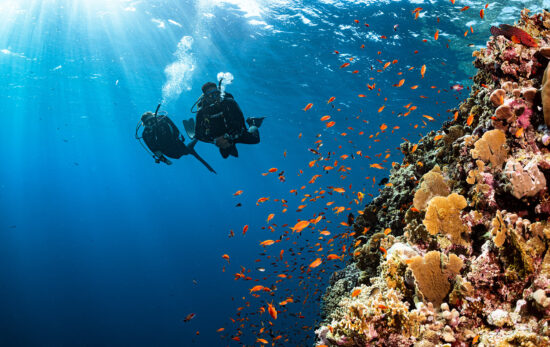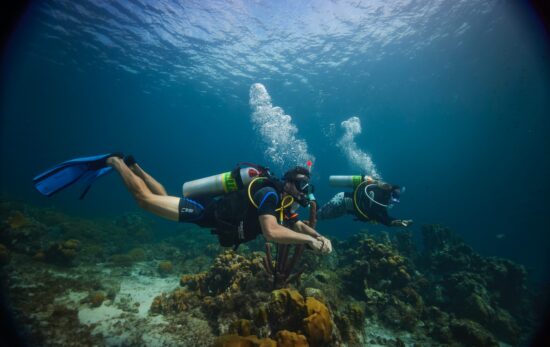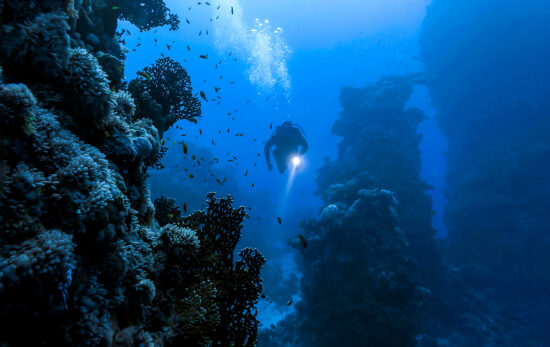YOU: “I’m learning to scuba dive”
THEM: “Wow, you must be really good at holding your breath!”
YOU: “Actually, no, the first rule of scuba diving is that you keep breathing”
Sound familiar? It is a common misconception among non-divers that breathing is somehow restricted when we scuba dive. But divers know that we can breathe easy underwater, sometimes even more so than on the surface! Developing effective breathing habits is a fundamental aspect of scuba diving and being surrounded by water is a strangely helpful environment for retraining ourselves.
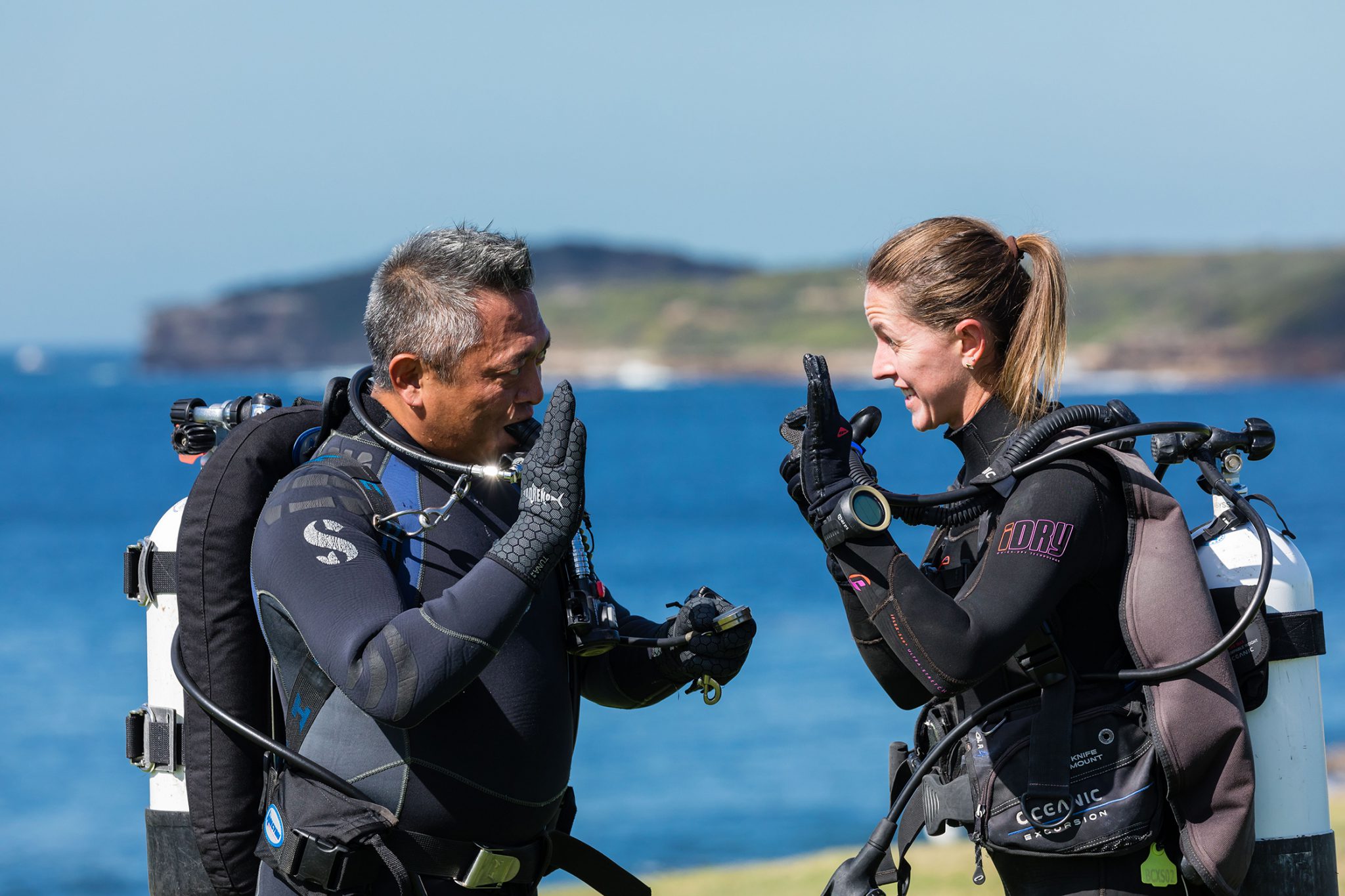
Forgetting to breathe
When we are relaxed, a natural breath is a slow, deep breath. When we are stressed, our breathing may become fast and shallow. Faster breathing can be important: When we are challenged our bodies can react by speeding up the heart and breathing so we can fuel the body with oxygen and work hard. However, relaxation is equally essential, because that’s when our bodies recover. Above the water, our minds are sometimes kept switched on by constant stresses and worries. Under chronic stress we can get stuck in breathing habits that are unhelpful, and we do not get enough opportunity to breathe.
It is possible to take advantage of these links between respiration and emotion by being aware of our breath and learning healthy breathing habits. Proper breathing alleviates stress.
Scuba diving reminds us how to breathe
When we learn to dive, we quickly begin to notice how important it is to control our breath. If we do not allow the air to leave our lungs, it is hard to get away from the surface. Once underwater we can observe how our bodies move up and down with our breath. And (if we are not careful) a big breath may set off an unexpected ascent! If we breathe too fast, or swim too quickly, we can feel stressed. And, if we get stressed or excited, then we use more air. We can even see breathing underwater, in the bubbles we exhale!
You can learn more about proper breathing techniques on the PADI Yoga Diver course. Or consider gaining more understanding of breath control with the PADI Peak Performance Buoyancy course.
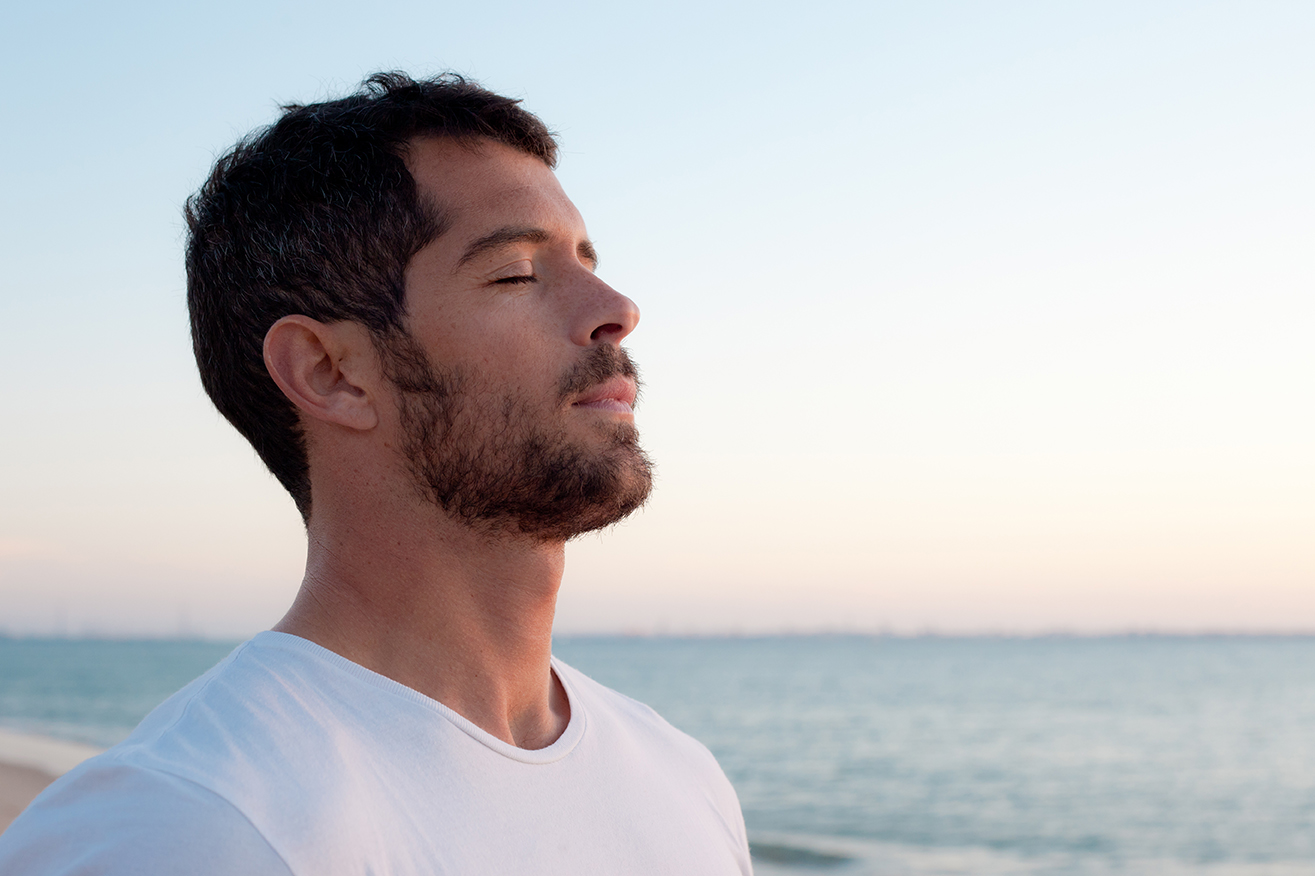
Breathe deep
When we dive, we breathe slowly and deeply. Breathing this way is better for air consumption because gas exchange is more efficient when the air is pulled down into the lungs and released slowly. Our bodies and brains need a steady supply of oxygen to function. Proper breathing technique helps us to stay healthy and fit-to-dive. Oxygen keeps us alert, focused and thinking clearly. Balanced inhales and exhales help our position in the water due to better buoyancy control. Slow, deep breaths are also calming: we tend to breathe like this when relaxed or resting.
The healing power of breathing well
Whether we are underwater or on the surface, breathing is core to our wellbeing. Not just for our immediate survival, but for our physical and emotional health. Perhaps scuba diving can help us to learn to regulate our breathing, because the effects of poor breathing habits are so much more obvious underwater? The promise of lower air consumption and better buoyancy control are certainly good reasons to practice!
Even a short period of slow, deep breathing can give us a chance to relax our minds and restore our bodies. What better excuse to take yourself underwater and blow some bubbles.
AUTHOR BIO:
Dr Laura Walton is a Clinical Psychologist and PADI IDC Staff Instructor with a fascination for the psychology of diving. Visit scubapsyche to learn more about our behaviour as divers.
